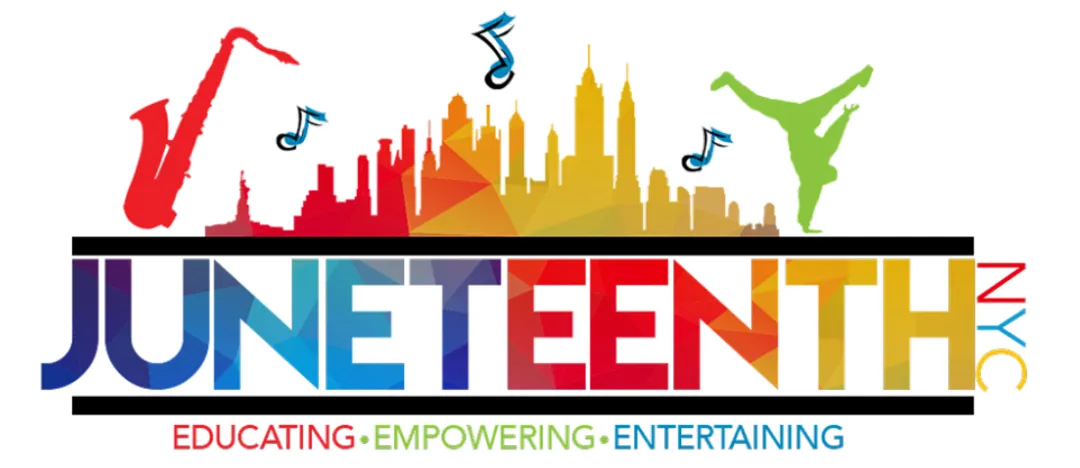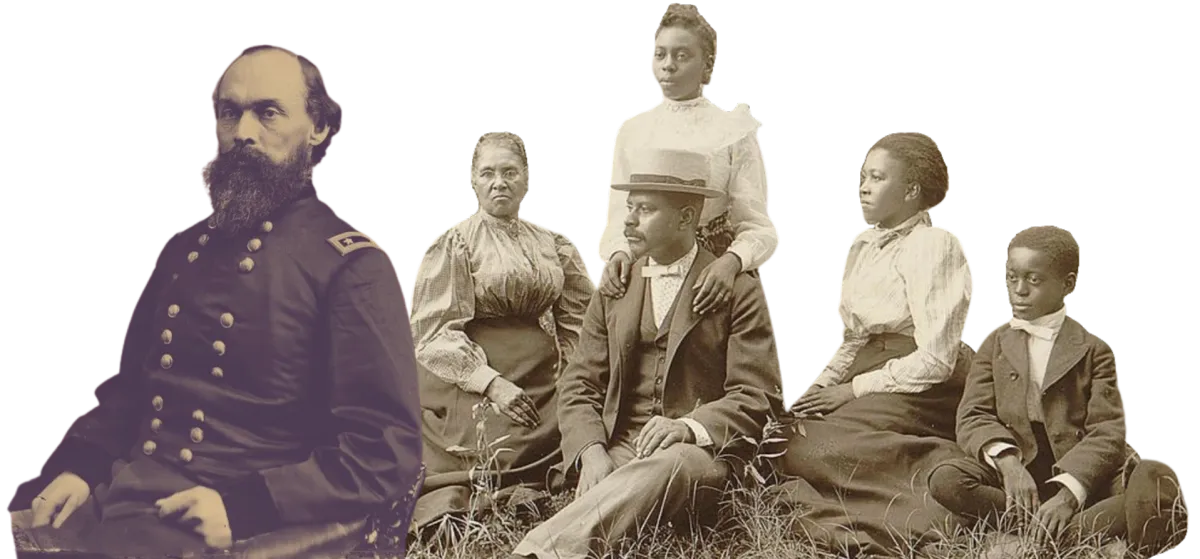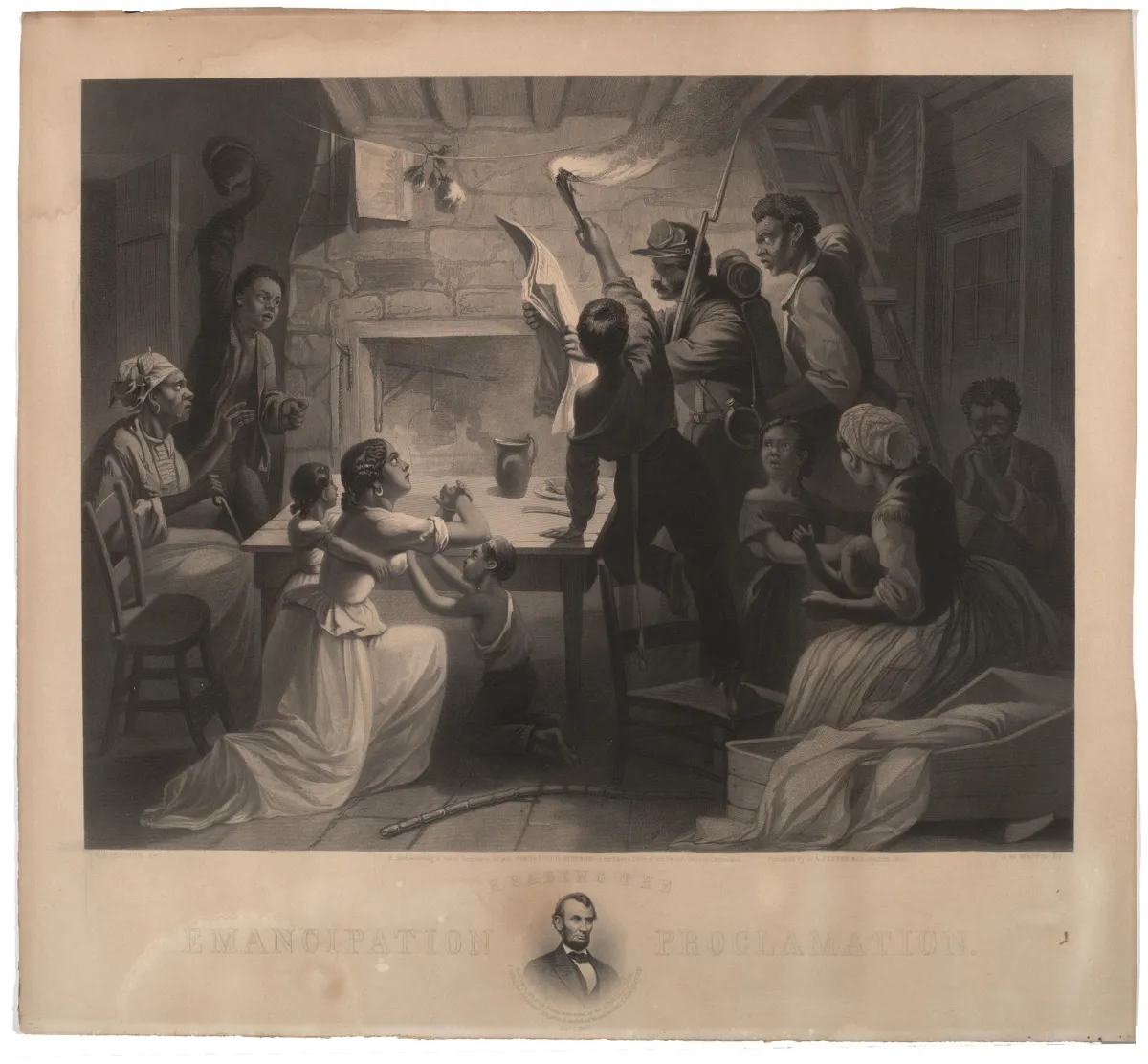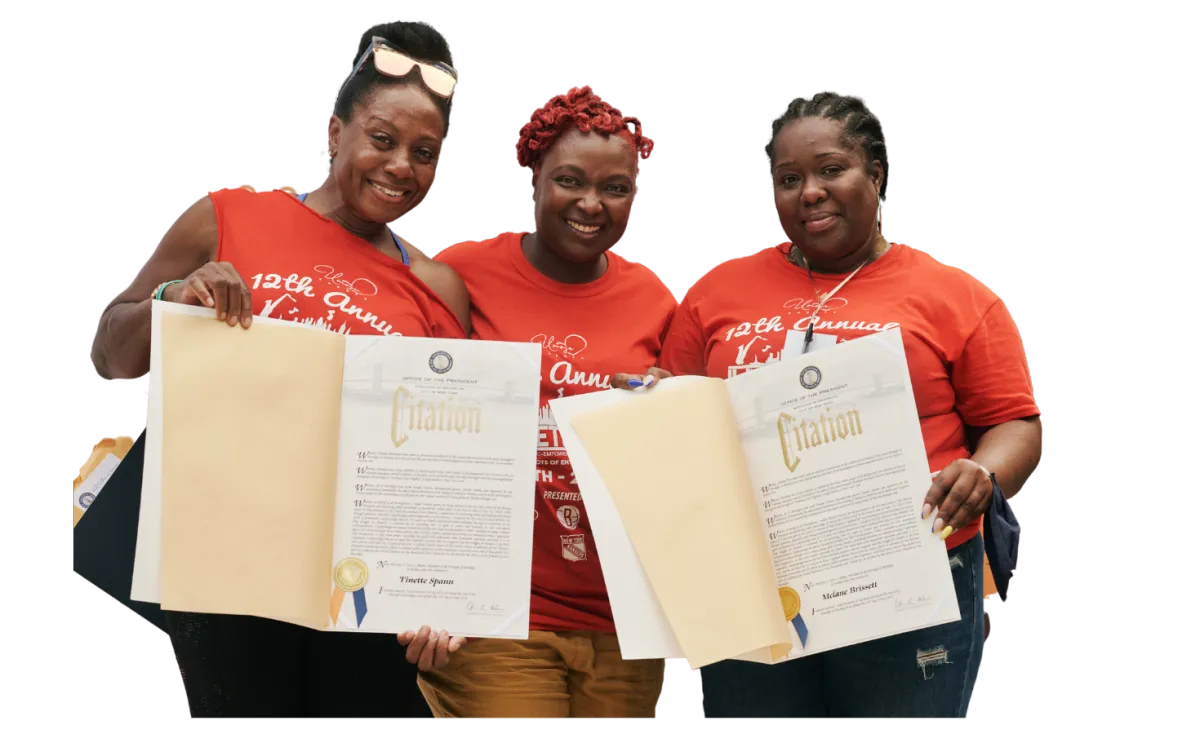
JUNETEENTH HISTORY
Unveiled: Understanding the Journey from Our Roots

JUNETEENTH HISTORY
Unveiled: Understanding the Journey from Our Roots

1862
"Journey to Emancipation Begins"
Juneteenth stands as a poignant milestone in the history of America and the rest of the world, embodying the enduring quest for freedom, justice, and equality. Spanning from June 19, 1862 to June 19, 1866, this significant historical period marks the journey to emancipation of enslaved African Americans in the United States.
On June 19, 1862, Major General David Hunter issued General Order No. 7, which emancipated enslaved people in Georgia, Florida, and South Carolina. However, this order was quickly revoked by President Abraham Lincoln, who feared it would cause border states to secede.

1862
"Journey to Emancipation Begins"
Juneteenth stands as a poignant milestone in the history of America and the rest of the world, embodying the enduring quest for freedom, justice, and equality. Spanning from June 19, 1862 to June 19, 1866, this significant historical period marks the journey to emancipation of enslaved African Americans in the United States.
On June 19, 1862, Major General David Hunter issued General Order No. 7, which emancipated enslaved people in Georgia, Florida, and South Carolina. However, this order was quickly revoked by President Abraham Lincoln, who feared it would cause border states to secede.


All across the United States and beyond, celebrations commemorate this historical event of 1865 in Galveston, Texas. General Gordon Granger of the Union Army, a native of Wayne County in New York, personally delivered the official order of the Emancipation Proclamation to the enslaved 2 years after it was issued by the 16th President Abraham Lincoln on June 19th, 1865. On this day, a new and uncertain way of life began. Today , more than 158 years since African Americans and Indigenous People of Color have elevated this celebration publicly and privately to of the most important event of the year.

1863
"Black Soldiers and The Union Army"
In 1863, Black soldiers enlisted in the Union Army, pivotal battles unfolded, and the Emancipation Proclamation came into force.
1863
"Black Soldiers and The Union Army"
In 1863, Black soldiers enlisted in the Union Army, pivotal battles unfolded, and the Emancipation Proclamation came into force.

1864
"The 13th Amendment - abolishing slavery"
In 1864, Congress passed the 13th Amendment, President Lincoln conferred with Frederick Douglass, and major battles persisted. Lincoln wielded his presidential war powers to issue the Emancipation Proclamation, declaring freedom for all enslaved individuals within Confederate-held territories, asserting that they shall forever be free and that the United States government would uphold and protect their freedom.

1864
"The 13th Amendment - abolishing slavery"
In 1864, Congress passed the 13th Amendment, President Lincoln conferred with Frederick Douglass, and major battles persisted. Lincoln wielded his presidential war powers to issue the Emancipation Proclamation, declaring freedom for all enslaved individuals within Confederate-held territories, asserting that they shall forever be free and that the United States government would uphold and protect their freedom.



1865
"A Hero Arrives"
The true culmination of emancipation came with the arrival of Union General Gordon Granger (a native New Yorker) in Galveston, Texas, on June 19, 1865. This was the day that approximately 250,000 Texan slaves were notified of their freedom and the end of the Civil War. This was after their freedom had already been announced in the Emancipation Proclamation two years prior.
This historic day stands as a testament to the perseverance and victories of those who ardently battled against the chains of oppression.
1865
"A Hero Arrives"
The true culmination of emancipation came with the arrival of Union General Gordon Granger (a native New Yorker) in Galveston, Texas, on June 19, 1865. This was the day that approximately 250,000 Texan slaves were notified of their freedom and the end of the Civil War. This was after their freedom had already been announced in the Emancipation Proclamation two years prior.
This historic day stands as a testament to the perseverance and victories of those who ardently battled against the chains of oppression.

Juneteenth is the oldest, nationally celebrated commemoration of the historical event of 1865 in Galveston, Texas which declared the ending of slavery in the United States of America.



Today, all of the descendants of those Africans and indigenous people of color in America have found an enormous responsibility and obligation to remember, renew our efforts and revitalize our spirits. We chose to do so through the organized effort and partnerships of different organizations. We found solidarity and connection in how we celebrate, and it will be showcased through our literary expression and images of the numerous shades of Black in music, technology, art, science and business.

As we take center stages to amplify throughout the communities that we are the source and reflection of a new generation of talent. These communities are the site where the torches of inspiration are passed and are encouraged to continue the tradition of celebrating annually. In honor of this long time coming, Africans and indigenous people of color in America will always celebrate each other and our triumphs with food, dancing, singing, and celebration and the absolute right to live and pursue happiness in spite of a nations attempt to silence us.
1866
"Slavery Was Abolished, Juneteenth Expands"
In 1866, slavery was formally abolished in the territories, leading to the expansion of Juneteenth commemorations. June 19, 1866 marked the first official anniversary of Juneteenth, celebrating the emancipation of enslaved African Americans in Texas.
Over time, Juneteenth commemorations have expanded and taken root across America, becoming an important annual event celebrated in various communities.

1866
"Slavery Was Abolished, Juneteenth Expands"
In 1866, slavery was formally abolished in the territories, leading to the expansion of Juneteenth commemorations. June 19, 1866 marked the first official anniversary of Juneteenth, celebrating the emancipation of enslaved African Americans in Texas.
Over time, Juneteenth commemorations have expanded and taken root across America, becoming an important annual event celebrated in various communities.

JUNETEENTH NYC celebrates freedom for all worldwide. It promotes unity and builds self-esteem through reflection, education, and through acknowledgement of achievements. This event encourages people of all races, nationalities and ethnicities to join together to support and participate in Juneteenth celebrations.
A true testament to humanity. Juneteenth serves symbolically. And in reality, as a reference point from which to measure and appreciate the progress and contributions made by African Americans to this society.
JUNETEENTH NYC celebrates freedom for all worldwide. It promotes unity and builds self-esteem through reflection, education, and through acknowledgement of achievements. This event encourages people of all races, nationalities and ethnicities to join together to support and participate in Juneteenth celebrations.
A true testament to humanity. Juneteenth serves symbolically. And in reality, as a reference point from which to measure and appreciate the progress and contributions made by African Americans to this society.


The modern Juneteenth movement began in 1994, aiming for national recognition of Juneteenth, which was achieved in 2019 when Congress officially recognized it as "Juneteenth Independence Day." As of 2019, 46 states and the District of Columbia have passed legislation to recognize Juneteenth officially.
Today, all of the descendants of those Africans and indigenous people of color in America have found an enormous responsibility and obligation to remember, renew our efforts and revitalize our spirits. We chose to do so through the organized effort and partnerships of different organizations. We found solidarity and connection in how we celebrate, and it will be showcased through our literary expression and images of the numerous shades of Black in music, technology, art, science and business.

The modern Juneteenth movement began in 1994, aiming for national recognition of Juneteenth, which was achieved in 2019 when Congress officially recognized it as "Juneteenth Independence Day." As of 2019, 46 states and the District of Columbia have passed legislation to recognize Juneteenth officially.
Today, all of the descendants of those Africans and indigenous people of color in America have found an enormous responsibility and obligation to remember, renew our efforts and revitalize our spirits. We chose to do so through the organized effort and partnerships of different organizations. We found solidarity and connection in how we celebrate, and it will be showcased through our literary expression and images of the numerous shades of Black in music, technology, art, science and business.
JUNETEENTH
"now a national recognized holiday"
On Wednesday, October 14, 2020, Governor Andrew Cuomo signed legislation (S.8598/A.10628) officially making Juneteenth, a day commemorating the emancipation of enslaved people in the United States, a New York state holiday.
Governor Cuomo said.
"This new public holiday will serve as a day to recognize the achievements of the Black community, while also providing an important opportunity for self-reflection on the systemic injustices that our society still faces today."

JUNETEENTH
"now a national recognized holiday"
On Wednesday, October 14, 2020, Governor Andrew Cuomo signed legislation (S.8598/A.10628) officially making Juneteenth, a day commemorating the emancipation of enslaved people in the United States, a New York state holiday.
Governor Cuomo said.
"This new public holiday will serve as a day to recognize the achievements of the Black community, while also providing an important opportunity for self-reflection on the systemic injustices that our society still faces today."


CONTACT US
For other questions or comments about JuneteenthNY, please give us a call at 646-585-0456 or send us an email. We will get back to you within 24 hours.



